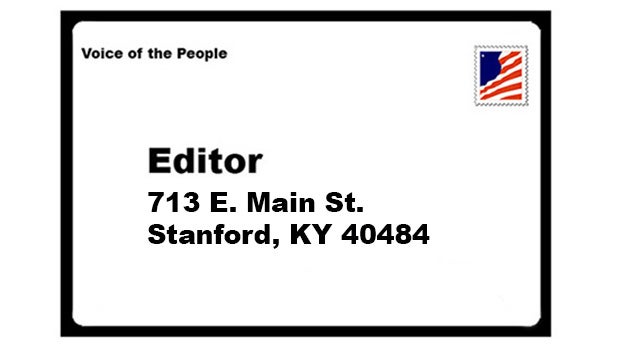Small paper makes big splash
Published 6:38 am Thursday, April 27, 2017
By Steve Wilson
The Paducah Sun
Art Cullen, editor and co-owner of the Storm Lake (Iowa) Times, was watching the livestream of the Pulitzer Prize announcements Monday when he suddenly jumped out of his chair and shouted:
“Holy s—, we won!”
His surprise over getting the prestigious prize for editorial writing was widely shared. The family-run, twice-weekly paper, with a total staff of 10 and a circulation of about 3,000, is one of the smallest Pulitzer winners ever.
The Pulitzer Committee praised his editorials as “fueled by tenacious reporting, impressive expertise and engaging writing that successfully challenged powerful corporate agricultural interests in Iowa.”
When I spoke with Cullen on Wednesday, his elation was mixed with exhaustion.
“I haven’t been able to sleep the past two nights,” he said. “I kept going over the editorials that won and thinking about how they could have been better.”
Cullen, 59, is a native of Storm Lake, a meatpacking and farming town of about 14,000 in northwest Iowa. He graduated from St. Thomas College in St. Paul, Minnesota, and worked at other Iowa newspapers before returning to his hometown in 1990 to start the Times with his brother John, who is publisher.
The paper’s staff includes Art’s wife Dolores, who is the photographer, and their son Tom, who is a reporter. Mabel, the family’s English setter, is also a newsroom regular.
The winning editorials were written after the Des Moines Water Works sued the paper’s home county and two others over farm pollution. More specifically, the suit asserted far too much nitrogen was being released through farm field drainage into rivers the utility relies on for its drinking water.
The counties fought the lawsuit with money from sources they would not disclose. Working with the Iowa Freedom of Information Council, the newspaper reported the funding came from big players including Cargill, Monsanto and the Koch brothers.
Here’s a taste of his writing:
“Anyone can see how filthy Storm Lake is, how the Des Moines River near Humboldt is a mud flow, how shallow lakes in Northwest Iowa have eroded into duck marshes.
“Anyone with eyes and a nose knows in his gut that Iowa has the dirtiest surface water in America. It is choking the waterworks and the Gulf of Mexico. It is causing oxygen deprivation in Northwest Iowa glacial lakes.
“Everyone knows it’s not the city sewer plant causing the problem. And most of us recognize that this is not just nature at work busily releasing nitrates into the water. Ninety-two percent of surface water pollution comes from row crop production….
“What’s more, the public probably suspects that it should not cost billions of dollars to fix the problem. It doesn’t. The solution demands that we quit farming into the ditch and over the fenceline. If we left 10% of Iowa’s marginal land fallow the nitrate problem would disappear. Iowa State University research proves it.”
The utility’s lawsuit was recently dismissed, however, because the court said it lacked standing. Any changes in law will have to be made by the state legislature, which Cullen believes are long overdue.
“The legislature could solve much of the problem by requiring 50-foot grass buffers along waterbodies,” he wrote.”Plowing into the banks of Pickerel Lake near Marathon should be banned. People who plow into road and drainage ditches should spend the weekend in jail.”
Given the dominant role of agriculture in Storm Lake, Cullen’s strong criticism of common farming practices brought a predictable backlash.
“A lot of people said we were anti-farmer. I’m not. I’m anti-pollution,” he explained, but his editorials have cost him friends as well as advertisers.
As intense as Cullen can be in his editorials, he has a lighter side. Talking about his efforts to make his paper appealing, he said:
“We strive to have a baby, a dog, a fire and a crash on every front page, so, yes, we do pander.”
More seriously, Cullen measures success by how well his paper keeps his community informed.
“We’re here to challenge people’s assumptions, and I think that’s what every good newspaper should do,” he said. “What matters to our readers is being honest with them and giving them the news they need.”
I like his priorities as well as his editorials.





